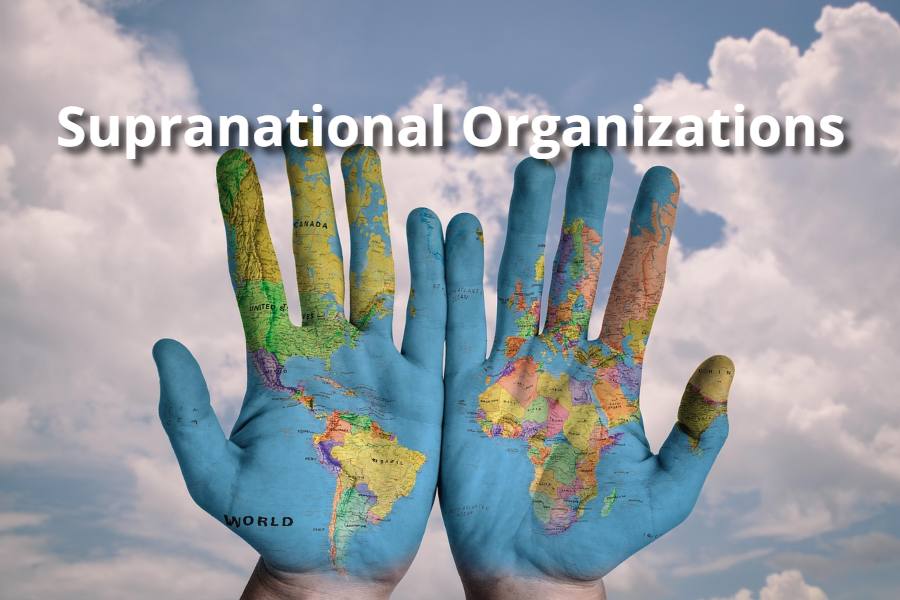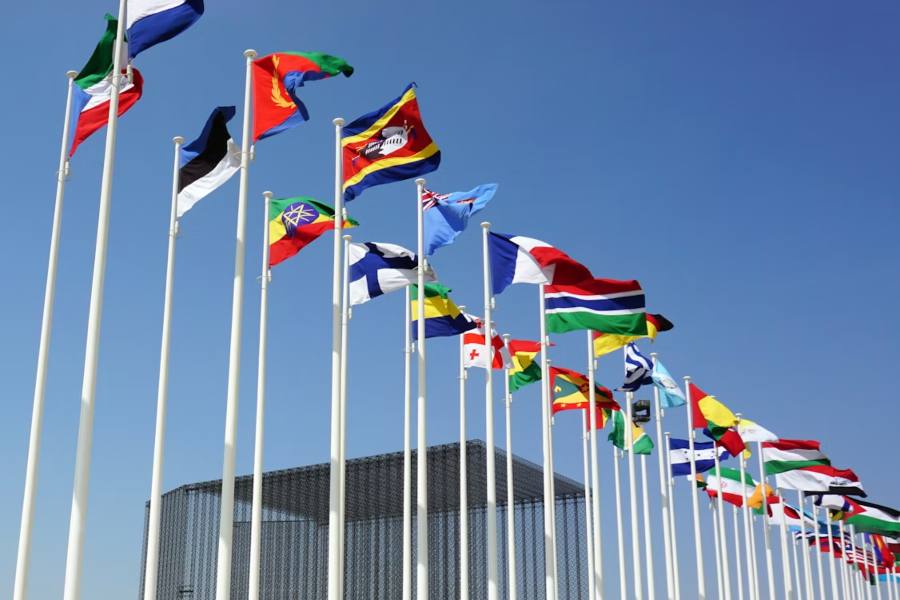
Supranational organizations play a crucial role in global governance, addressing transnational issues and fostering international cooperation. Unlike national governments, these organizations transcend borders and aim to harmonize policies, promote peace, and tackle global challenges that no single nation can handle alone. They work on critical matters such as economic development, human rights, and climate change, influencing global decisions and outcomes.
Some of the most notable supranational organizations include the United Nations (UN), European Union (EU), and World Trade Organization (WTO), each playing a significant role in shaping international relations and fostering cooperation. These organizations provide a platform for dialogue, negotiation, and conflict resolution among member states, helping maintain peace and stability worldwide. However, they face numerous challenges, including political tensions, funding shortages, and issues related to sovereignty.
In this article, we’ll explore the structure, functions, and impact of supranational organizations, highlighting the key trends and challenges they face, and the role they will play in addressing global issues moving forward.
The Structure and Purpose of Supranational Organizations
Supranational organizations are formed through treaties or agreements among multiple countries, with the aim of solving global issues that require collective action. These entities operate beyond the scope of individual national governments, addressing challenges that affect the international community. The structure of supranational organizations can vary depending on their purpose, but most have governing bodies composed of representatives from member states. For example, the European Union (EU) has institutions like the European Parliament and the European Commission, while the United Nations (UN) has the General Assembly and the Security Council.

The primary purpose of supranational organizations is to foster international cooperation in areas such as peacekeeping, trade regulation, human rights advocacy, and climate change. By working together, member countries can address problems that go beyond national borders, such as global security threats, economic crises, and environmental issues. These organizations are designed to promote peaceful coexistence, economic development, and the resolution of conflicts. Understanding the governance and functions of these organizations helps clarify their critical role in shaping international policy and maintaining global stability, ensuring that global challenges are met with collective solutions.
Pivotal Functions of Supranational Organizations
This section will focus on the major functions of supranational organizations and how they influence global governance:
Supranational organizations serve multiple roles in the international community. Their key functions include:
- Peacekeeping and Conflict Resolution: Many supranational bodies, such as the UN, deploy peacekeeping forces to conflict zones to maintain stability and facilitate diplomatic resolutions.
- Regulating Global Trade: Organizations like the WTO regulate international trade policies, ensuring fair practices, resolving disputes, and facilitating economic cooperation between nations.
- Promoting Human Rights and Social Justice: The UN and other international organizations monitor and promote human rights worldwide, working to prevent abuses and ensure equality.
- Environmental Protection: As climate change becomes a pressing global issue, supranational organizations such as the UNFCCC work to negotiate international agreements and implement environmental protections.
By exploring these functions, we gain a better understanding of how supranational organizations help address the world’s most complex and pressing challenges.
Challenges Faced by Supranational Organizations
Supranational organizations face a range of challenges that can hinder their effectiveness. Some of the main obstacles include:
- Political Tensions: National interests can often override collective decision-making, leading to deadlock or ineffective action.
- Sovereignty Concerns: Countries may be reluctant to cede authority to international bodies, especially on sensitive issues like security or human rights.
- Funding Issues: Inconsistent funding from member states and reliance on voluntary contributions can create financial instability, limiting the impact of these organizations.
- Bureaucracy: Large organizations may become bogged down in bureaucratic processes, slowing down response times to emerging crises.
Understanding these challenges is crucial for improving the functioning and effectiveness of supranational organizations in the future.
The Role of Supranational Organizations in Global Development
Supranational organizations play a significant role in promoting global development, particularly in areas such as economic growth, poverty reduction, and health. Some key initiatives include:

- Economic Development: The World Bank and IMF provide loans and financial support to developing countries, helping to foster infrastructure projects and stabilize economies.
- Global Health Initiatives: Organizations like the WHO lead efforts to address public health crises, providing resources and expertise to combat diseases and improve healthcare systems.
- Poverty Alleviation: Many supranational organizations work to reduce poverty by promoting sustainable development, creating jobs, and addressing inequality.
Through these efforts, supranational organizations are crucial in advancing the global agenda for sustainable and equitable development.
Future Trends in Supranational Organizations
As the global landscape evolves, supranational organizations are adapting to new challenges and opportunities to remain effective in addressing global issues.
Digital Transformation
Supranational organizations are increasingly integrating technology into their operations. This digital transformation helps improve efficiency, transparency, and engagement with citizens worldwide. Through online platforms and data-driven decision-making, these organizations can enhance their ability to respond to global challenges in real-time.
Regional Cooperation
There is a growing trend towards regional cooperation, with many countries forming regional supranational organizations. Examples include the African Union (AU) and the Association of Southeast Asian Nations (ASEAN), which focus on addressing regional issues and promoting economic integration, security, and political stability.
Focus on Sustainability
As environmental concerns intensify, supranational organizations are prioritizing sustainability. They are pushing for international agreements on climate change, renewable energy, and environmental conservation. By fostering collaboration among member states, these organizations aim to address global environmental challenges and ensure a sustainable future.
Increased Collaboration with the Private Sector
To achieve their goals, many supranational organizations are increasingly partnering with the private sector. These collaborations leverage corporate resources and expertise, helping address pressing global issues such as economic development, health, and climate change.
Conclusion
Supranational organizations are essential in addressing the world’s most pressing challenges, from conflict resolution to economic development and environmental protection. Their ability to transcend national borders and foster cooperation is vital for maintaining global stability and promoting collective action. As these organizations continue to evolve and adapt to emerging trends, their role in shaping international relations and solving global problems will only become more critical. By improving their governance, funding models, and efficiency, supranational organizations can continue to drive meaningful change and create a more peaceful and prosperous world.
FAQ’s
What are supranational organizations?
Supranational organizations are entities formed by multiple countries that work together to address global issues. They operate beyond national governments and aim to promote cooperation on matters like trade, security, and the environment.
What are some examples of supranational organizations?
Examples of supranational organizations include the United Nations (UN), European Union (EU), World Trade Organization (WTO), and World Health Organization (WHO).
How do supranational organizations influence global policy?
Supranational organizations influence global policy by setting international standards, resolving conflicts, facilitating trade agreements, and promoting human rights.
What challenges do supranational organizations face?
Supranational organizations face challenges such as political tensions, sovereignty concerns, inconsistent funding, and bureaucratic inefficiency, which can hinder their ability to act effectively.
What is the future of supranational organizations?
The future of supranational organizations will involve greater digital transformation, regional cooperation, a focus on sustainability, and increased collaboration with the private sector to address global challenges.





